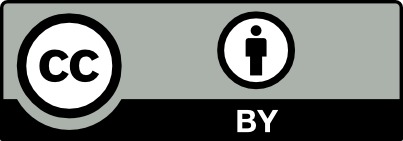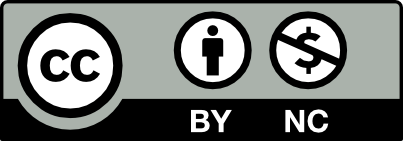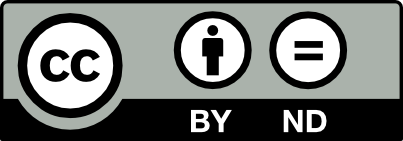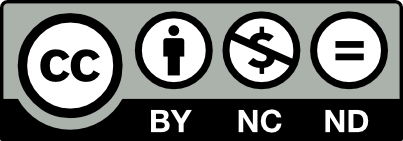Copyright and Research Ethics
Research ethics refers to the behavioral principles or behavioral patterns that researchers should follow whiling conducting research and includes a wide meaning of publication ethics.
Copyright
- Copyright recognizes efforts and values of the creator’s unique results and protects the author’s right.
- The copyright of the paper to be published in a journal may belong to the journal or to the author.
- If a journal owns a copyright, it may require the author to transfer the copyright and for Open Access (OA) journals, the copyright belongs to the author.
Creative Commons License(CCL)
- The copyright holder may allow others to use the work and the one receiving the permission to use the work may use it “within the scope of permissible use and conditions”. (Article 46 of Copyright Act)
 CC BY: Indicate about the author including the author’s name, the title and source.
CC BY: Indicate about the author including the author’s name, the title and source. CC BY-NC: If the author is indicated, it is free to use, but for commercial purposes
CC BY-NC: If the author is indicated, it is free to use, but for commercial purposes CC BY-ND: If the author is indicated, it is free to use, but without change
CC BY-ND: If the author is indicated, it is free to use, but without change CC BY-NC-ND: If the author is indicated, it is free to use, but for non-profit purposes without change
CC BY-NC-ND: If the author is indicated, it is free to use, but for non-profit purposes without change
Research Ethics
- Research misconduct includes forgery, falsification, or plagiarism of data.
- If concerns are raised about the execution or integrity of the content described in the manuscript, editors initiates a research recommended by an organization such as Committee on Publication Ethics (COPE) and the evaluation of the corresponding literature is postponed.
- Even in the case of a paper allowed to be published, if ethics is questionable, it can be retracted.
- - Papers retracted from Pubmed Meline
- - (Publication Ethics Guidelines: Q&A Case Analysis (published in 2014 by Korean Association of Medical Journal Editors)
- Falsely record or report nonexistent data or results
- [1] Present data that did not appear in experiments and investigations as real data
- [2] Fake research records to align with the research plan
- [3] Fake questionnaires for interviews that were not conducted and falsify research results
- Manipulate the research process, research materials and devices and distort or delete the data to falsify the research contents and results
- [1] Intentionally or mistakenly explaining something that is not clear in the statistical analysis of the research data
- [2] Select, omit, delete or conceal research data without statistical evidence
- [3] Exaggerate, reduce, or alter research subjects to derive distorted research results
- Plagiarism is an act of stealing the work or ideas of others, not general knowledge, without proper quotation.
- Self-plagiarism is that you use some or all of your previous research results without revealing the sources.
- Even when my own papers are reused without proper quotations, if they have been already published and the journals have the ownership, they are deemed to violate the publication ethics.
- Fractional publication means thin slices like salami, which is to publish the same data and method in several parts. Pasting is an act of reporting the same results repeatedly by changing the number of subjects or the period of research.

 Kakao Channel
Kakao Channel
